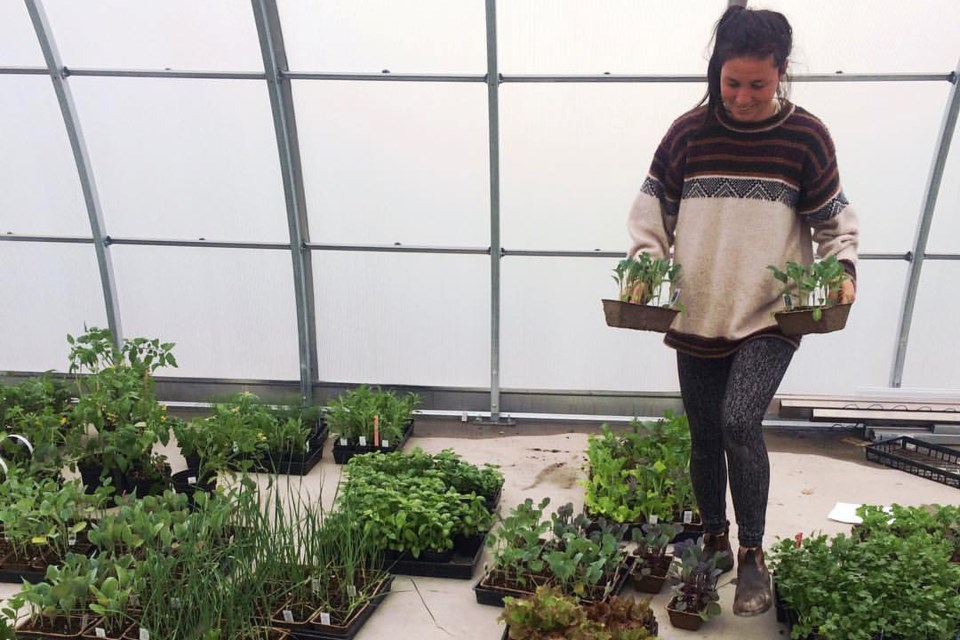BOW VALLEY – Food sovereignty and supports will continue as the Bow Valley Food Alliance recently received an additional $131,000 in grants.
Almost six months into the COVID-19 pandemic that swept the province mid-March and the Bow Valley Food Alliance (BVFA) has announced it has received three additional grants in an effort to continue support to the valley.
In the last month, the alliance received $131,000 that will help support food-related organization and businesses offering immediate food relief, while also supporting cultural groups doing work to ensure communities have access to culturally appropriate foods. The funding has also allowed the part-time food response coordinator position to turn into a full-time position.
“We hope to continue to provide a coordinated approach in our outreach and response to community food needs across the Bow Valley, providing a unique space for vulnerable communities to access the food supports that are most appropriate to them,” Cody Alba, BVFA COVID-19 Food Response Coordinator wrote in a press release.
Earlier this year, the alliance received funding from the Bow Valley emergency funding grants, which allowed the creation of the food response coordinator position that was originally slated to only be part-time or a couple of months. Now, thanks to the $101,000 from the United Way’s Emergency Community Support Fund provided through the Banff Canmore Community Foundation, organizers said the new position will be full-time until the end of the year.
“Through a coordinated approach, the BVFA coordinator will continue food response work, identifying needs and gaps related to food and COVID-19, building relationships across the Bow Valley, and working to support vulnerable community members who may not have access to traditional food supports,” Alba wrote, while noting the funding will also be used for food boxes, hampers, prepared meals and culturally appropriate foods.
When the positive COVID-19 cases began to spike in April, the provincial government ordered non-essential businesses to close, which resulted in massive layoffs in the tourism-based businesses and restaurant industries. Banff’s estimated unemployment rate reached 85 per cent and Canmore’s was estimated to be between 50 and 65 per cent.
Since Alberta’s Relaunch Strategy – reopening businesses and services at 50 per cent capacity on May 14, and further reopening businesses and services while still enforcing two-metre physical distancing on June 12 – unemployment numbers in the tourism and restaurant industry have gone down, but food security issues remain.
Even before the pandemic, the Bow Valley Food Alliance was working on food sovereignty studies across Banff, Canmore, I.D. 9 and the MD of Bighorn. One study out of Banff showed affordability, food waste and access to health and organize foods were some of the key concerns. The additional funding will allow the alliance to continue its previous work while also focusing on the pandemic food response, with each grant targeted to different goals.
While the $101,000 funding is partly to help fund the emergency coordinator position and continue food response work, some of the funds might also be used for skill development workshops, community capacity building events, community infrastructure, such as freezers, and additional responses to food-related needs as they arise, Alba said.
The Bow Valley Christmas Spirit Campaign also donated $10,000. Those funds are dedicated to support food-related organizations and businesses offering immediate food relief to those impacted by the pandemic. The funding is also aimed to support vulnerable communities, including frontline workers, seniors, unemployed individuals, families and children, organizers explained.
Through the Community Food Centres of Canada, the Good Food Access Fund also donated $20,000 in grocery gift cards.
“This funding will better enable the BVFA to support cultural groups who are doing important work in ensuring their communities have access to culturally appropriate foods in the Bow Valley," Alba wrote. "By connecting cultural groups to grocery cards provided through this fund, the BVFA aims to support communities in the work they are doing to meet their own needs, building on community assets and fostering community-based food systems,”
With all the grants together, officials said it will allow the alliance to move towards its vision of fostering community-based food systems that are equitable and ecologically regenerative while supporting food sovereignty for all diverse communities in the Bow Valley.
“The BVFA COVID-19 food response work is based on supporting and galvanizing the strengths and assets that exist throughout the Bow Valley,” Alba wrote.
“Combined, the BVFA believes that this work will lead to more resilient and sustainable food systems, a vital step in ensuring our communities will make it through the pandemic.”




